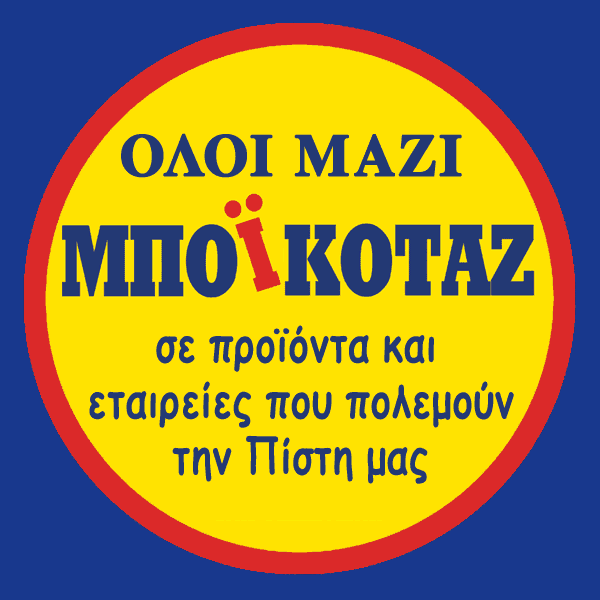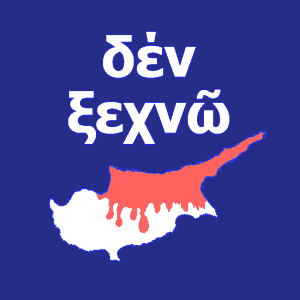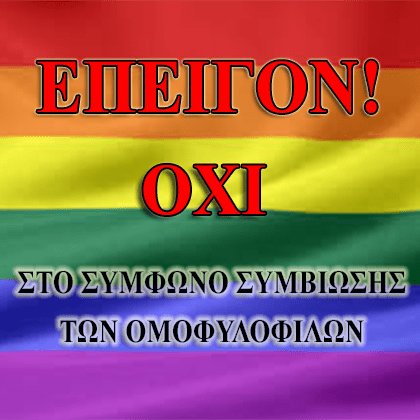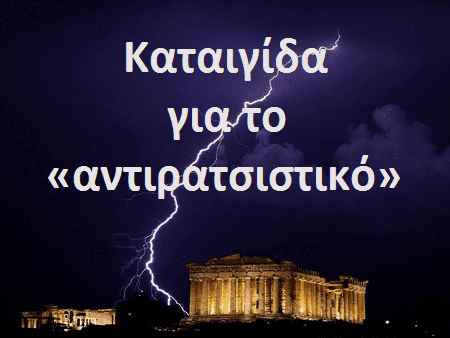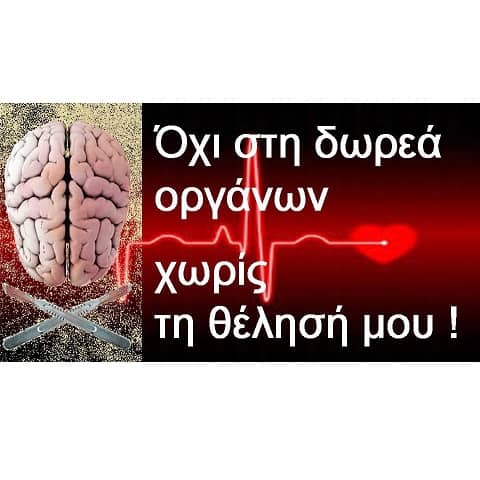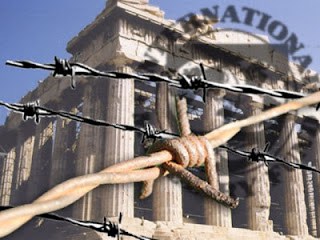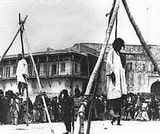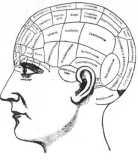ALEXANDER AND CHRISTIANITY
by His Excellency the Former Minister of the Hellenic Republic Nicholas Martis, Translated in English from Greek by Nina Gatzoulis, Supreme Secretary of the Pan-Macedonian Association, USA
PREAMBLE
Alexander the Great placed his stamp onto the history of nations as the precursor of Christ, since he:
- brought the Hellenic civilization to the East,
- established the Greek language as the only common tongue of communication amongst all the nations of the then known world, which was used as a vehicle to promulgate Christianity, that addressed peace and love between nations,
- condemned racial discrimination and declared religious freedom.
The above theory can be further reinforced by the following arguments:
The Prophets of Israel not only portended about Alexander the Great, but Alexander's arrival to Jerusalem signified the encounter of Hellenism with Judaism and the meeting of monotheism with the pagan religion of the ancient world, which in reality prepared the world's transition to Christianity.
Plutarch considered Alexander the Great as a philosopher, "from the deeds of Alexander, from what Alexander taught and what he said".
Alexander's achievements had great influence on other religions and other nations.
ALEXANDER AND THE PROPHETS OF ISRAEL
Let us now review briefly the prophecies about Alexander the Great:
The Prophet Isaiah (8th century B.C.), in Chapter 18, paragraph 20 of his Prophecies, pronounced that "When (the people of Egypt) exclaim to the Lord, then the Lord will send them a man to save them. He will rule them and will save them from dangers". According to Professor Panagiotis Trempelas (Note about the Prophet Isaiah, page 232) Alexander is the liberator of the Egyptians, who were under the Persian dominion and he was considered the incarnation of the expected Messiah. The proclamation of Alexander the Great as Pharaoh by the Egyptian Hierarchy, as soon as they met him, is a further proof of Isaiah's prophecies.
The same Prophet of Israel lauds (Ch. 10, par. 23) the years "that was a happy period of free exchange between the Assyrians and Egyptians, that helped establish Judaism easier". According to Professor Trempelas (p. 234) this time is Alexander's period in Egypt. In the 6th Chapter (par. 18) Prophet Isaiah states, "I come to unite all the nations". Professor Trempelas clearly asserts that Alexander "did not only save the Jews, but rescued all the nations". Plutarch on the other hand writes that, during Alexander's speech at Opis, in front of 9,000 Greek and Asian officials and others, he pointed out among other manifestations, that "now all people everywhere, will enjoy concord, peace and a common society ".
Prophet Daniel, (6th c. BC) in Ch. B, par. 39 of his Prophesies, foresaw the reign of Alexander the Great, occupying the throne of Solomon. It is known that the Assyrian King Navuhudonosor had a terrifying dream, which was so terrible, to the point that the King was left without any memory of it. Daniel asked God about the Assyrian King's dream and the following prophecy was revealed through Daniel to the King: "King, you are the golden head and after you a smaller kingdom will emerge. Following this, a third kingdom will appear, which will be symbolized by bronze and this kingdom will dominate all Earth. After that a fourth kingdom will come and this kingdom will be as strong as iron". All experts agree that the second kingdom was that of the Persians and King Medes, the third was Alexander the Great’s and the reign of the Hellenes, while the fourth one was the Roman dominion. In addition, Prophet Daniel (Ch. 7, lines 1-22) prophesized that this Hellene King will conquer the Persian King and also this Greek King will be succeeded by four Kings of the same nation. Certainly the experts agree that the King Daniel refers to, is Alexander and the other four Kings of the same nationality are his Successors.
Prophet Joel (5th century BC) prophesized about the Macedonian Greeks (Chap. D, par. 6): "Children of Juda and Jerusalem you have been attracted to the Hellenes". He also portended that in subsequent times (during the period of Alexander's successors) distinguished Jewish individuals would receive Greek names and the Jews would adopt many Greek traditions.
ALEXANDER AND THE HEBREW ARCHPRIESTS
Around 70 A.D. the Hebrew historian Josepus Flavious (Hebrew Archeology, Ch. A 329) states that after the conquest of Tyre and the siege of Gaza, Alexander the Great visited Jerusalem, where right at the entrance of the city he was greeted by the Hebrew Archpriest, Simon the Just, accompanied by other Jewish priests and a multitude of people. Alexander descended his horse and went to greet the Jewish Archpriest. Parmenion, Alexander's General, approached him and advised Alexander that his soldiers are displeased that he rushed first to greet the Jewish Priest. Alexander however, answered, "I did not greet the Archpriest, but the God he represents". Following the Archpriest's indication, Alexander carried out a religious sacrifice at the Temple of Solomon and allowed the Hebrews of Jerusalem and other Jewish states to use their paternal religious rites. Alexander's act set an original pattern of respect for religious freedom, in an era that such a behavior was totally unprecedented.
However, when Alexander asked the Archpriest for his statue or his portrait to be placed at Solomon's Temple, the Archpriest responded that the God of the Jewish has ordered them that no statues or any other icons should be placed in the Temple. Nonetheless he assured Alexander, "We will do something that will remain in eternity. All the male children that will be born this year to priests and the descendants of the Levi clan, will receive your name, they will be named Alexander". According to the Talmud (the Jewish religious text of the Rabbis and the religious Rabbi schools) "this is how the name "Alexander" entered the Hebrew society in commemoration of the Great Greek General and it continues to be used for generation after generation". Let it be noted that many Hebrew individuals bear even to these days the name Alexander. The admission of Alexander's name into the genealogy of the Jewish community gave Alexander a divine quality and thus the Hellenic intellect and knowledge in close contact with the world of Revelation, prepared the ground for the expansion of Christianity.
An additional event that verifies the close ties of the Macedonian Greeks with the Jews is the following: When the three Wise Men, while going to Bethlehem, arrived in Jerusalem, they exchanged the currency of their fatherland with local cash. Most of the local money that they used was coins with Greek writings and on one side. They depicted Hercules' head (forefather of the Macedonian kings) and on the other side an eagle, symbol of the Selefkid Greeks of Syria. This was the official currency in Judaia until Christ's years and this kind of currency was also accepted in the Jewish temples.
According to Constantine Paparrigopoulos, the word Synagogue, which is Greek, dates back, probably to the command that Alexander gave, relating to freedom of various Jewish gatherings. Also the annual Hebrew Convention that used to take place in Jerusalem was called "Synitrins", from the Greek word Συνέδριο.
ALEXANDER AND ANCIENT SOURCES
As the ancient geographer, Strabo mentions, Alexander was constantly informed by the scientists who followed him about all the ethnographic, geographic, zoological and botanical new encounters they came upon, during the expedition to the East. He internationalized commerce, because he believed that commerce unites people and for this reason he used common currency in his Commonwealth. The Attic drachma became the means of commercial exchange amongst nations and people.
Diodorus in his writings mentions that the "conqueror (Alexander) coerced the enemies to be happy". If we take under consideration that during Alexander's era the word and meaning of the word "philanthropy" could not be comprehended, then we can conclude that Alexander the Great can be called the "national precursor of Christ". Alexander never followed his teacher's, Aristotle's, advice, who suggested to him to treat the Greeks well and to behave toward his subservient non-Greeks as the conqueror King. Alexander's aim was to elevate the conquered and to make them equal to the Greeks. Apostle Paul was the first one to utter such a phrase as, "there is no Jew or Greek", but Alexander the Great way before the Apostle's era, practiced it throughout his life and therefore he did establish himself as the first advocator against racial discrimination.
As Arrian mentions, liberating the Greek cities of Asia Minor from the Persians he "ordered the oligarchies everywhere to be dissipated and democratic laws to be established for each one of them".
Alexander was a compassionate man, especially to those that were not so fortunate; for this reason he exempted his Macedonian soldiers from their debts. At the same time however he showed great respect for public money. Arrian writes, "About the money that came through contributions he was very frugal, but about money for philanthropy he was very generous". The Greek scholar and politician Panagiotis Kanellopoulos mentions that Alexander severely punished the administrative personnel, when they exploited public funds and they mistreated citizens of his Commonwealth.
Holtzer in his book, “Paul” writes, "For a time came from Macedonia the young hero (Alexander) and along with his 22 years of youth, he brought with him the gifts of the West to the East, the Greek language and the Greek philosophy. Now the West is asking for the most beautiful gift that exists in the East, the teachings of the Man of Nazareth".
ALEXANDER AND CHRISTIANITY
Before Apostle Paul declared the equality of man and woman (letter to the Galatans, C28), Alexander always displayed chivalry toward women. Arrian was impressed with Alexander's attitude and Plutarch in his writings, mentions about Alexander that “conquering one's own passions seem more royal than to conquer his enemies”. Alexander never touched a woman until he was married. As soon as he saw Roxanne among the women that he captured in Petra of Sogdiani, he fell in love with her. He however did not disgrace her, but married her. The respect he showed to Darious' III mother, when he captured her resulted in the great maternal love she felt for Alexander. When Mazaios, one of Darious' men, tried to liberate her she refused to go and when she heard that Alexander was dead she went on a hunger strike for five days and finally she committed suicide.
Saint Vasilios the Great, addressing the youth, presents Alexander as the role model of self-discipline.
One outcome and result of Alexander's vision and achievements, is the fact that during the year 285 BC, the Old Testament was translated in Greek. This Greek translation is the formal text used in East and West. The New Testament was also written in Greek. This kind of scholarship, which was spread in the East, had its origins in Macedonia. It is also through Macedonia that Christianity was carried to Europe and to the rest of the then known world. Apostle Paul, influenced by the endeavors of Alexander the Great and his Successors, accepted the Greek intellect and teachings and he began spreading Christianity first in the city of Philippi, in Macedonia (Acts of the Apostles, chap. 6, par. 9, 10).
The historical significance of the Greek intellect, which during the Hellenistic years was epitomized by the Macedonians, it is crystallized in Chap. 12th, par. 20-23 of the Gospel, According to John, when Philip and Andrew, Christ's Disciples, said to the Lord that the Greeks came to see Him; Jesus answered them: "The time has come, for the Son of Man to be glorified". Christ's statement in reference to the events that would follow about His Own glorification and the glorification of Christianity, clearly prescribed the historical significance and the role that Hellenism played in conveying Christianity to the world.
ALEXANDER AND RELIGIONS
Now we can examine the influence and effects Alexander's deeds had on other religions and nations during that time. Up to his era Hindu Gods, especially Buddha, were not permitted to be depicted in any form or shape. However, since the Indians came in close contact with the Greek world, their Gods were portrayed full-bodied. The first statues of Buddha resembled ancient Greek Gods (especially Apollo) and they were wearing the Greek “chiton” and also their facial features carried the Greek art (art of Kantara in today's Pakistan and Afghanistan). Also the effect of the Hellenistic world, from the Selefkids era, can also be verified in the coins of Baktria and today's Pakistan area, where during the Hellenistic years thirty kings of Greek descend reigned, without an interruption.
In the West the Romans deified Alexander. The Romans were the first to name Alexander "Great". The Roman Senate and the Emperors of Rome were proud to be heirs of Alexander's Empire.
Prophet Mohamed in the Koran mentions Alexander (with the name Zaul Karnein) among the prophets who wished to lead the world in the practice of charitable deeds.
ALEXANDER AND SUCCESSORS
After Alexander's death, his Generals [“Diadohi” - Successors], who divided his vast empire, were able individuals to follow his plan, at least in the political field, since they succeeded to make his visions come true. The Ptolemies concentrated their energies in Alexandria, while the Selefkids' center was Antioch. Ptolemy A', who attended Aristotle's school the same years as Alexander, founded the legendary Library of Alexandria, which up till Ptolemy's VI era continued to be enriched with books (about 700,000 books). It should be mentioned that the first library of Rome was the one that was seized from the last King of Macedonia, Perseus, by the Roman government official, Emilius Paulus.
Alexandrian scholars, having the support of the Ptolemies, worked on the classical documents, classified them, translated them and sent copies to Rome's, Athens' and Constantinople's libraries. With these documents and readings, as intellectual and spiritual base, the Fathers of the Church, outlined and frameworked the teachings of the first centuries of Christianity. The work of the Alexandrian scholars was used in Europe during the Renaissance era and thus the culture of the ancient Greeks became property of today's societies of the world. Also Islam was influenced by the Greek way of thinking, when Islam reached such areas as Syria and Alexandia.
Alexandria was Alexander's and his Successors' creation and played an important role in passing on the bright lights of Christianity. During the flourishing of the Neo-Platonic theories from 160 to 405 AC, the first theological school thrived there. The Greek language was used as a vehicle to fulfill its mission toward the world, the spread of Christianity to the world. As it was mentioned prior, the Fathers of the Church, who were the first heralds of Christianity, became known mainly in Alexandria, due to the Greek culture and the Greek language.
The husbandry between Christendom and Greek intellect was accomplished in Alexandria due to the efforts in particular of Hierarchs Klemis and Origenis. The Fathers of the Church, especially the Three Hierarchs possessed theological knowledge and had a great Greek education. "Alexander's and his Successors' great achievement, the Hellenistic era and its culture, which later was inherited by the Romans, Byzantium and by the peoples of the Near East, had significant influence in the development of nations later", said Abraham Rankovitz.
Christianizing the Slavs by the Greek Thessalonikian brothers and monks, Methodius and Cyril, was such a milestone in European and international history and this was a consequence of Byzantium's glory and in reality the outcome, the end result of the Hellenistic period. Pop John Paul VIII, delivering a speech on April 22, 1990, in Czechoslovakia said: "…that we the Slavs are Christians today, we owe it to the Macedonian Greek brothers who were born in Thessaloniki, Methodius and Cyril. They are the ones who carried the Byzantine tradition in Europe". The cultural infrastructure of the Hellenistic period and especially the great monetary contributions and the interest of the Byzantine Emperors became the cause of establishing and creating the monastic city of Hagion Oros (Holy Mountain), the only monastic city that exists in the world. This city can be characterized as the Arc of Orthodoxy in its more that a millennium existence.
THE VISION AND DEEDS OF ALEXANDER
The vision and the achievements of Alexander the Great in the political, financial and cultural development of nations, resulted in a brilliant model, as mankind advances onto the third millennium. Launched from Macedonia with the aspiration to unite nations with peaceful ties, ties of cooperation and social intermingling, his intent was neither to conquer riches, nor to satisfy passions. Alexander expressed this aspiration when he met with the philosopher Diogenis in Corinth. His ideas about respecting the traditions of conquered peoples, their participation in governing themselves, the eventual elimination of discrimination between conquered and conquerors and finally the program of decentralization of the governing agencies, taught many nations in the international arena how to govern themselves. Also the social achievements of Alexander and his Successors are more significant than the battles that took place during his campaign. Nothing can surpass the social welfare, the public education and the justice for the weak during that era.
Alexander with his deeds transformed the shape of global history. He conceived the idea of humanism in government and he boldly made it happen. With the propagation of the Greek language as the official language of his Asiatic and African Commonwealth, Greek became the formal tongue of communication between the multiethnic peoples of the East. Alexander and his Successors became not only the bearers of the Greek tongue, but they also offered to the world the Greek culture and knowledge, elements that further prepared nations to accept the teachings of the Savior of Nazareth on the Holy Mountain.
Alexander’s own marriages to Roxanne, Oxiartis’ daughter from Vactria, as well as the massive marriage of his one hundred officers to Persian women, his trust to include non-Greeks in his government’s administrative positions, further validate his beliefs against inequity.
Now we have come to the conclusion that Alexander the Great, through his deeds and achievements, became "the vehicle of God". "Not even to me does it seem possible that he turned out to be unlike any other human being, without divine intervention," wrote the historian Arrian, as he completed his book, Alexandri anabasis [Expedition of Alexander].
--------------------------------------------------------------------------------
http://www.antibaro.gr


